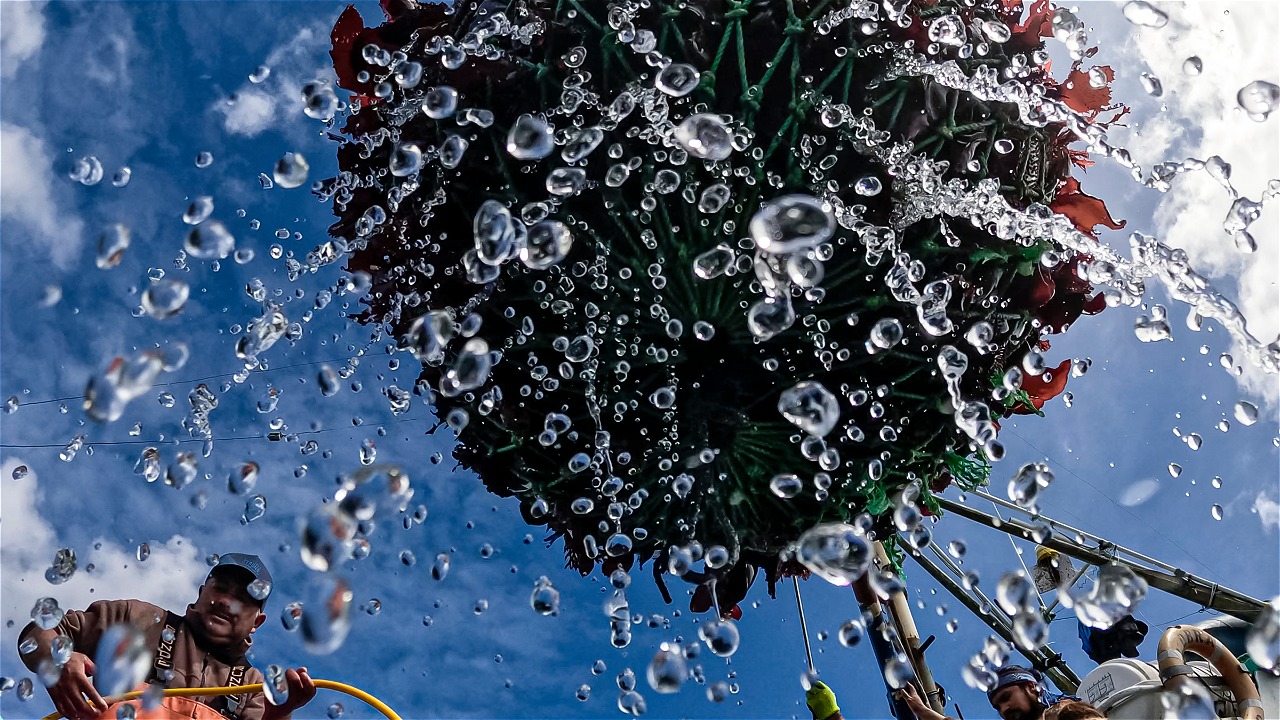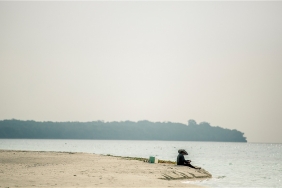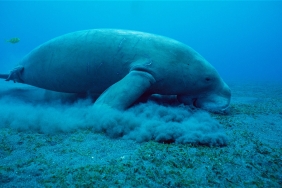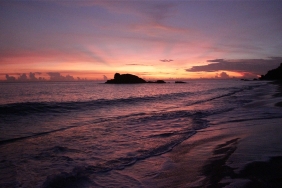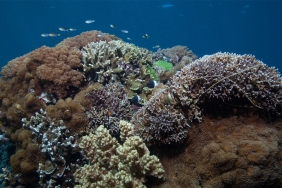ADVANCED WORKSHOP OF API RAMLI INNOVATION COMPETITION 2015
By: Sanny Tri Utami (Sharks Conservation Assistant)
Fishing technology in Indonesia is developing very fast, technological innovation in optimizing catches is one of the benchmarks used. However, on the one hand, it is not uncommon to catch protected and endangered marine animals such as sea turtles, sharks and marine mammals. Since 2015, the Directorate of Vessels and Fishing Gear (KAPI) - Ministry of Maritime Affairs and Fisheries (KKP) together with WWF-Indonesia has organized the Environmentally Friendly Fishing Gear Competition (API Ramli) in search of selective but efficient fishing gear innovations as a form of responsible fisheries management.
Based on this activity, the 3 winners of API Ramli innovation conducted preliminary research which was then presented on May 30-31, 2016 at Oria Hotel, Central Jakarta. The results of the application test of innovations that have been carried out by the three winning groups were then reviewed by the 2015 API Ramli Competition Jury consisting of Dr. Candra Nainggolan (Lecturer at the Jakarta Fisheries College), Mrs. Aristi Dian (Lecturer at the Faculty of Fisheries and Marine Science, Dipenogoro University), Mrs. Hesti Warih (Ocean Fisheries Port, Nizam Zachman), Dr. Ronny Wahyu (Lecturer at the Faculty of Fisheries and Marine Science, Dipenogoro University), Dr. Ronny Wahyu (Lecturer at the Faculty of Fisheries and Marine Science, Nizam Zachman), and Dr. Ronny Wahyu (Lecturer at the Faculty of Fisheries and Marine Science, Dipenogoro University).Ronny Wahyu (Lecturer at the Faculty of Fisheries and Marine Science, Bogor Agricultural University, Mr. A. Anung Widodo (Fisheries Research and Development Center, KKP), Mr. Bagus Oktori (Directorate of Fishing Vessels and Fishing Tools) and Mr. Widodo (Fishing Development Center, Semarang), Imam Musthofa (WWF-Indonesia) and the staff of the Directorate of KAPI-KKP.
Three Inspiring 2015 API Ramli Innovation Winners
Three inspiring API Ramli 2015 winners have been selected based on the originality of the idea, innovativeness and creativity of the group. The three winning groups are the API Electro Shield System innovation group "ESS", by Muhammad Ali Dofir, Galih D Akbar, and Romi Dwi Nanda (Faculty of Fisheries and Marine Science, Brawijaya University); API innovation group "Audiosonic Tool "A-Tool" by Arqi Eka Pradana and Dian Pranoto (Faculty of Fisheries and Marine Science, Universitas Brawijaya); API innovation group "Modified Permanent Magnet Fishing Rod" by Adefrian Kharisma Yuniarta (Fish Quarantine, Quality Control and Fishery Product Safety Agency, Tanjung Pinang) represented by W. Teguh Prawira.
The API innovation groups present made presentations of their applied test results. The results of the API innovation applied test began with the use of Permanent Magnet Fishing Rods on longline boats in Galesong Waters, Takalar Regency, South Sulawesi, indicated by the effect of the magnetic force of the fishing rod on the catch of ketambak fish seen in the average fishing rate (Hook Rate). According to the percentage calculation, the average hook rate for ordinary fishing line was 1.6%, while the average hook rate for permanent magnet fishing line was 4% and 0% for shark bycatch. The results of the provisional study show that the use of magnets does not affect the main catch, but it is not certain that it can reduce shark bycatch.
The results of the second API Ramli innovation field test, the operation of (ESS) at a frequency of 55-100 Hz installed on gill net fishing gear in Banyuwangi, showed that at this frequency it can increase the catch of several types of reef fish that do not have electroreceptor organs without any shark bycatch at each net drop.
The results of the third API Ramli trial (A-Tool) operated at frequencies of 400-499 Hz in floating cages on net fishing gear in Banyuwangi, showed that at these frequencies the tool could attract reef fish species. The use of the A-Tool was very unpopular with sharks as no sharks approached and were caught during the trials.
At the end of the activity the jury announced that there would be further in-depth research for the improvement of the three API Ramli innovations which would be accompanied by the KAPI Light Fishing Working Group - KKP and the three winners of this national competition would be facilitated to take part in the Smart Gear International competition next year. It is hoped that API Ramli's innovation competition can be held annually in order to realize environmentally friendly fisheries practices in Indonesia.
Another series of activities is the discussion of the API Ramli innovation collection book obtained based on innovations that have passed the selection in the previous year. It is hoped that the book will become a reference for the development of selective and responsible fishing gear technology in Indonesia in the future.

